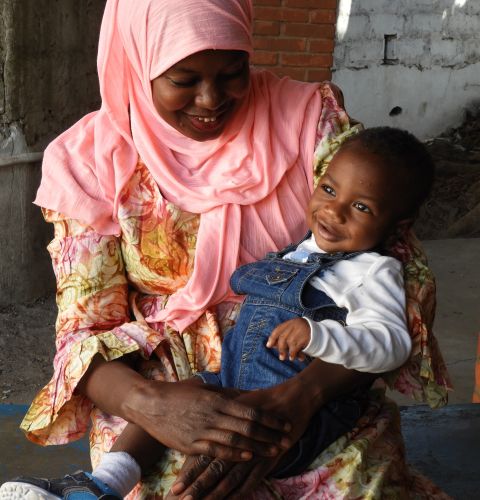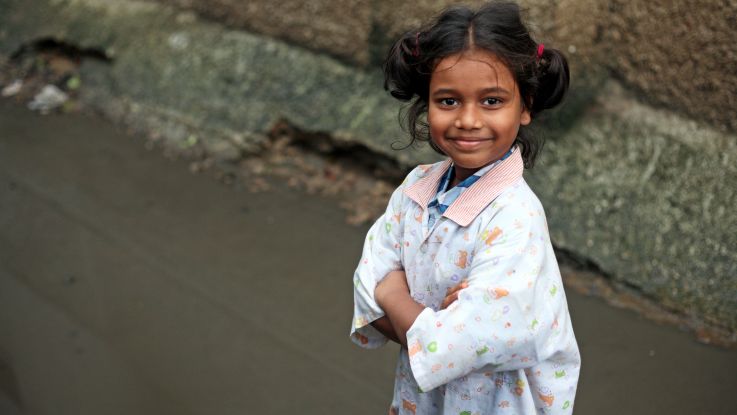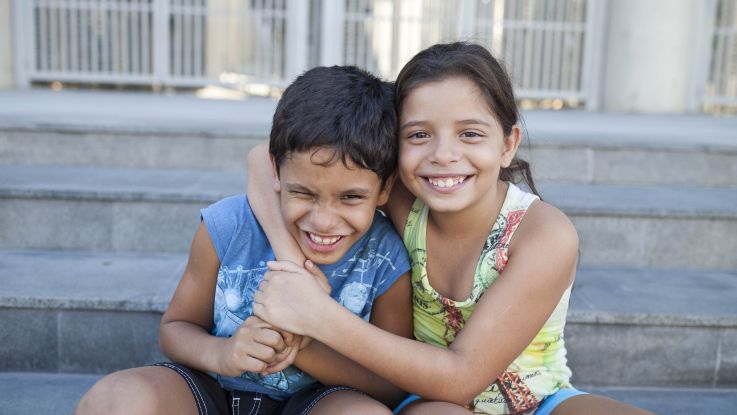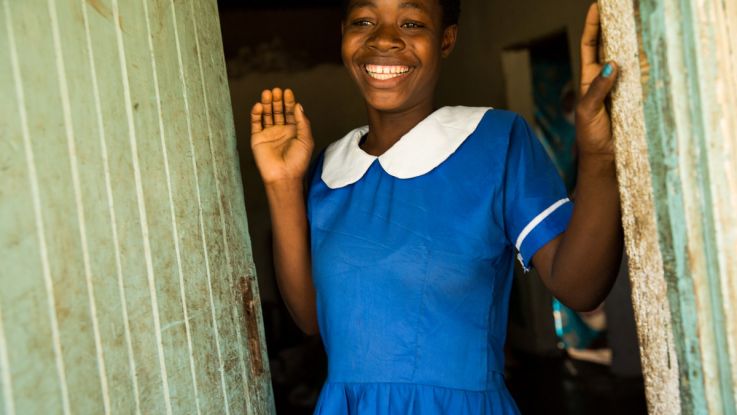The Gambia
Why we work in The Gambia
The Gambia is the smallest country on the African continent. Its Atlantic coastline attracts thousands of tourists each year, but it is still one of the poorest countries in the world.
Three quarters of the population earns a living through farming. The rise in droughts and flash floods makes it difficult to grow crops, meaning people often go hungry.
There has been real progress with education in the last few years, with 97% of children now enrolled in primary school. But the quality of education is still poor, and children in rural areas, particularly girls, have poor attendance. Nearly half of the adult population can’t read or write.
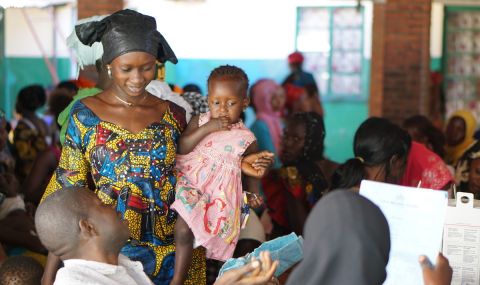
Improving access to health services in The Gambia .
What we do in The Gambia
A key way we’re improving education is through supporting Mothers’ Clubs. We help them campaign for better quality teaching and attendance and plant school vegetable gardens that provide nutritious food for the children to help them get through the day.
Despite farming being the main source of income for Gambian women, the land is controlled by men. By helping women claim their rights to own land and offering them affordable small business loans we enable them to earn their own income. And we empower women to challenge violence, which is common in schools, homes and on the streets.
Supporting communities through the Covid-19 pandemic
Since the start of the pandemic ActionAid has reached more than 14,000 people as part of our emergency response in The Gambia, focusing on preventing the spread of the virus and protecting women’s rights.
This has included the distribution of PPE, food packages and cash transfers for vulnerable families, as well as supplying menstrual products for girls in schools.
Amid concerns about the rise in gender-based violence, we have been supporting communities with supplies, training and awareness-raising sessions to prevent violence and protect women’s rights.
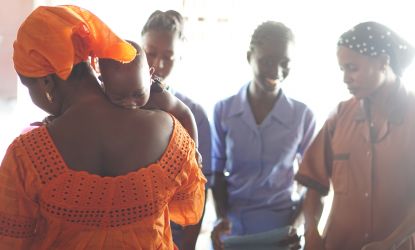
Families in The Gambia can now receive automatic SMS reminders about healthcare appointments
Kathryn McDonagh/ActionAid
Improving healthcare for women and girls
In The Gambia, 6% of children will not make it to their sixth birthday. More than half these deaths are a result of malaria and illnesses such as diarrhoea, which could be prevented through vaccinations.
Even when children are registered for healthcare, they often don’t receive the vaccines they desperately need due to inefficient health services.
That's why alongside our partner, the Shifo Foundation, we are using an innovative and cost-effective technology system, known as MyChild, to make sure every child in The Gambia is not only registered on the health system, but receives high-quality care and essential vaccines.
Thanks to this system, which integrates paper with technology, over 80,000 children in The Gambia have already been registered. More than 23,000 children have been vaccinated.
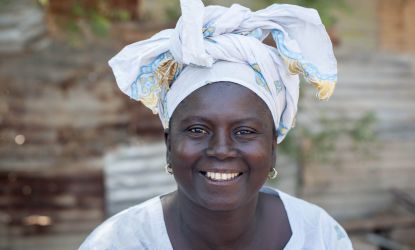
Supporting Mothers’ Clubs to improve business skills
We’ve supported the Dakunku Mothers’ Club since 2010 with business ideas and training. One of its 140 members, Fatou, was a single mum with seven children and no income. She asked for help to set up a poultry farm so we gave her the training she needed to get started.
She’s now been running a successful poultry business for over seven years. This not only puts food on the table for her children but it helps other children too – because the local school use the manure from her chickens to help grow vegetables. Fatou says, “I feel deeply honoured to be part of the mothers’ club. We believe having good food at the school will help support the enrolment and retention.
Find out more about our work on women's economic empowerment
Dankunku Basic Cycle Mother's Club. Dankunku. Gambia. Fatou Fatty, aged 42. Poultry farmer and member of the Mother´s Club.
Sylvain Cherkaoui/Cosmos/ActionAid
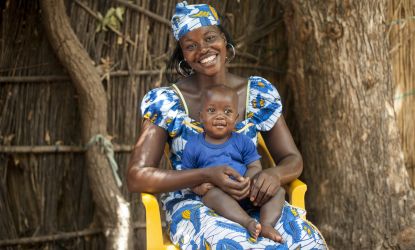
Jockul. Gambia. Balleh Secka, 30 years old, With Assan, aged 1, her son. Jockul Skills Group.
Sylvain Cherkaoui/Cosmos/ActionAid
Helping women start their own business
Four years ago, 10 women living in the remote rural community of Jockul decided to set up a small tie-dye and soap-making business to help support their families. To help them get up and running we gave them group training in finance and marketing as well as supplying start-up materials and tools.
Today, the group has over 40 members who share the income. 30-year-old Balleh helps organise the group and takes her baby Assan along with her. She tells us, “Assan is benefitting from the Jockul Skills Group because the money I earn from it allows me to buy enough food for myself, which means I can breastfeed Assan successfully.”
Page updated 29 January 2025
